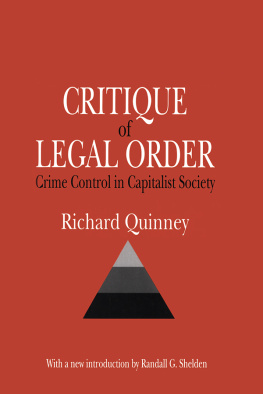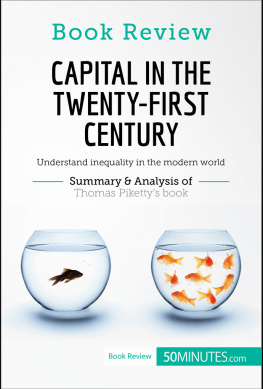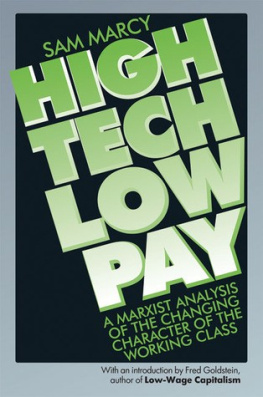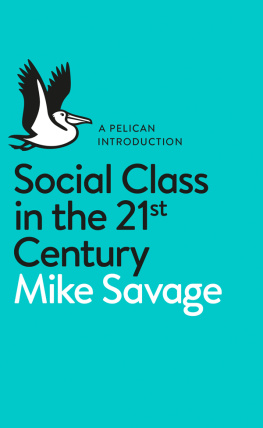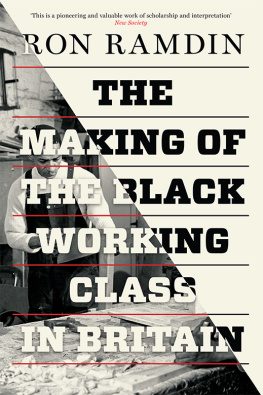First published 2018 by Pluto Press
345 Archway Road, London N6 5AA
www.plutobooks.com
Copyright Charles Umney 2018
The right of Charles Umney to be identified as the author of this work has been asserted by him in accordance with the Copyright, Designs and Patents Act 1988.
British Library Cataloguing in Publication Data
A catalogue record for this book is available from the British Library
ISBN 978 0 7453 3709 8 Hardback
ISBN 978 0 7453 3708 1 Paperback
ISBN 978 1 7868 0245 3 PDF eBook
ISBN 978 1 7868 0247 7 Kindle eBook
ISBN 978 1 7868 0246 0 EPUB eBook
This book is printed on paper suitable for recycling and made from fully managed and sustained forest sources. Logging, pulping and manufacturing processes are expected to conform to the environmental standards of the country of origin.
Typeset by Stanford DTP Services, Northampton, England
Simultaneously printed in the United Kingdom and United States of America
Introduction
Capitalism has been around for something like 500 years, and has held sway over for the vast majority of the earth for about 30. The reason this is worth pointing out is because, for many of its supporters, capitalism is far from perfect but it is the model that most fits with the reality of what human beings are actually like. A common argument goes as follows: humans are competitive, and some humans are much better than others (cleverer, harder-working and so on), and so a system which relies on competition and inequality, while it might seem a bit harsh, is basically appropriate. To try and do otherwise (i.e. build a system based on cooperation and equality) might be tempting but is ultimately utopian and thus doomed to fail.
But these kinds of argument, while posing as pragmatic, are also utopian in their own way. If capitalism really fits that well with human nature, then governments would not have to intervene so frequently and extensively to stop it falling apart. Anyway, as soon as we understand the comparatively short historical roots of capitalism, we are forced to recognise it for what it is: a system with a particular set of rules, among many others with different rules that have existed in the past, and which might exist in the future. Given that life on earth still has about five billion years left to run before the planet is engulfed in the suns death cycle, it seems presumptuous to imagine that the system we have currently is the one that is best suited to the human condition.
The point of saying this is not to speculate about what the world might be like over the rainbow. It is simply to observe that, while we are in the middle of an era, it is very difficult to see beyond it. Various things about the world that appear second nature to those living within a specific system can start to appear very strange when looked at from a wider perspective. For example, in feudal Britain most people did not consider whether the belief in the kings right to rule being bestowed directly by God would appear ridiculous from the vantage point of the twenty-first century. Likewise, it is possible that, in centuries to come, people may also see something ridiculous in a system whereby supermarkets load their shelves with completely unnecessary quantities of food that gets thrown in the bin at the end of the day, while some people struggle to afford proper nutrition. So this book is, in part, an attempt to make life under twenty-first-century British capitalism look strange.
One of its strangest elements is the question of class. Most people do not particularly want a society divided along class lines. But rather than do anything about this, people tend to invent ideas (e.g. meritocracy, social mobility) that make it seem a bit less offensive. Hence, it is often argued that the ideal society should be one of equal opportunity, where every individual succeeds or fails on their own merits. This way, we would still have a class-divided society, but at least we would know that the people at the bottom truly deserved to be there.
Until recently, people that talked too much about class were considered to be dinosaurs from the age when poor children toiled day and night, losing their fingers amid the power looms of northern England in order to avoid the workhouse. The mainstream centre-left in Britain, supposedly sympathetic to working-class concerns, swallowed this argument whole, and it was elevated to one of the central dogmas of British politics from the 1990s until about 2015. But now this line looks very dated. Instead, the fashionable thing to say about class is not that it doesnt matter, but that the way in which it matters is changing. Nobody really disputes that, for instance, the Brexit referendum of 2016 revealed substantial differences in the worldviews and aspirations of people from different socio-economic backgrounds, though how to interpret this is more controversial.
Initially, the re-emergence of class was driven by conservative voices. There is a powerful story that can be told about British politics (and indeed politics in any number of countries), about the divide between cosmopolitan elitists who love globalisation, and the ordinary people who are menaced by it. People on the right have been very good at playing on this idea, and they have, at times, used it to make discussion of class almost inseparable from neuroses surrounding nationalism and immigration. After assuming power, Theresa May tried to embody this worldview, though not very persuasively. But however bad things became for her, they were much worse for the centre-left,* who found themselves rendered irrelevant by their failure to find their own way of addressing the topic of class that didnt involve either empty platitudes or borrowed nationalism.
The reason British politics has suddenly become interesting is because we have the opportunity to see whether a more radical version of the left can do any better. Jeremy Corbyns leadership of the Labour Party throughout 2017 was highly successful: to understand that this is the case, you need to compare its results not with previous election victories such as 1997, which might as well be 200 years ago given how much has changed since then, but with what is happening to equivalent parties in other countries in 2017. In France, Germany, the Netherlands, Greece, even in the US, established parties of the mainstream left look increasingly weak and directionless. In the UK, by contrast, following the 2017 general election there was actual enthusiasm and optimism.


